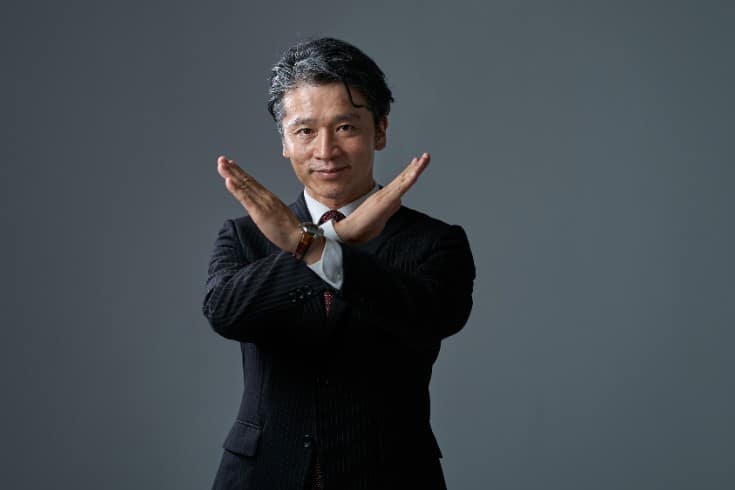Legal and Practical Cases Concerning the Validity of Non-Compete Clauses in Transfers to Same Industry Competitors

In labor contracts, in addition to the basic obligations of the worker’s duty to work and the employer’s duty to pay wages, there are also ancillary obligations. One of these ancillary obligations is that both parties have a duty to consider not unfairly infringing on the legitimate interests of the other party (a duty of good faith for the worker, and a duty of consideration for the employer) under the principle of good faith (Article 3, Paragraph 4 of the Japanese Labor Contract Act). The duties of good faith that the employer should bear include the duty to consider safety and health, while the duties of good faith that the worker should bear include the duty not to defame the employer’s credit or reputation, the duty to prohibit dual employment, the duty to maintain confidentiality, and the duty to prohibit employment with a competitor (non-competition obligation).
Determining the Validity of the Non-Compete Clause Prohibiting Transfers to Competing Companies
There is a risk that a company’s crucial know-how could be leaked externally due to the competitive activities of its employees. Therefore, it is necessary to clearly stipulate a non-compete clause in employment contracts. However, even if such a clause is included, its validity is not always recognized due to the worker’s right to freedom of choice of occupation (Article 22, Paragraph 1 of the Japanese Constitution). If the restrictions of a non-compete clause are too severe, it may be deemed invalid as it goes against public order and morals (Article 90 of the Japanese Civil Code).
Therefore, it is necessary to be aware of what kind of content will be considered valid when stipulating a non-compete clause in an employment contract.
The Ministry of Economy, Trade and Industry (METI) has organized the points to consider when assessing the validity of a non-compete clause in its reference material “On the Validity of Non-Compete Agreements” (METI Reference Material 5):
- Whether there are corporate interests to protect → From the perspective of whether the content of the non-compete agreement is within a reasonable range in light of its purpose, taking into account 1.
- The position of the employee
- Whether there is a geographical limitation
- Whether necessary restrictions have been imposed on the duration of the non-compete obligation
- Whether necessary restrictions have been imposed on the scope of the prohibited competitive activities
- Whether compensation measures have been taken
In legal cases where the validity of a non-competition agreement has been disputed, judgments have been made based on these multifaceted perspectives regarding the rationality of the contract conclusion and the appropriateness of its content. Understanding these judgment points in legal precedents is important when considering the introduction or revision of a non-compete clause prohibiting transfers to competing companies.
When the Validity of the Non-Competition Clause is Not Recognized

Let’s look at the six points to see in what cases the validity of the non-competition clause was not recognized.
Case Where the Existence of Corporate Interests to be Protected Was Not Recognized
There was a case where a company, which procures waste plastics and other materials from suppliers and grinds them in a factory for export overseas, claimed damages for breach of confidentiality and non-competition obligations, or tort or breach of employment contract, against employees Y1, Y2, Y3, and the company that newly hired them.
The company’s work rules stated, “Employees must not disclose to others any confidential information or know-how obtained in the course of their work, including company, customer, and supplier secrets, even after leaving the company.” It also stated, “Employees involved in the company’s secrets (including business know-how, customer information, etc.) must not use those secrets to change jobs to a competitor or engage in the same type of business for three years after leaving the company.”
The plaintiff company argued that the three individuals used important business information such as the type of transactions with each client, procurement volume, and price at their new jobs. However, the court denied the misuse of trade secrets, stating that these were not protected as trade secrets, and said,
In order for non-competition clauses in work rules or non-competition agreements by agreement to be recognized as valid, it is understood that the content of the non-competition must be kept to the minimum necessary in light of the interests that the employer seeks to secure, and that sufficient compensation measures must be taken. If these conditions are not met, the above-mentioned clauses or agreements are considered to be invalid under Article 90 of the Civil Code, as they unilaterally and unfairly restrict the rights of workers and are contrary to public order and morals. However, in this case, since the defendants Y2 and others were not in a position to use business secrets in the course of their work at the plaintiff’s company, as recognized in (1) above, there is a lack of a prerequisite for prohibiting competition in the first place, and the plaintiff has not taken any compensation measures for the defendants Y2 and others, so the above-mentioned non-competition clauses or agreements must be recognized as invalid under Article 90 of the Civil Code.
Tokyo District Court, March 13, 2012 (Heisei 24) Judgment
This was the court’s conclusion.
It is not possible to demand a ban on changing jobs to a competitor from all employees, and whether there are corporate interests to be protected, such as business secrets or special know-how and information, even if they do not reach that level, is the biggest point in determining whether or not the validity of a non-competition clause is recognized.
Case Where ‘Employee Status’ Was Not Recognized
A plaintiff company, which operates a paid job placement business based on the Japanese Employment Security Act and provides job placement for medical practitioners to hospitals, etc., claimed damages from a former employee who had moved to a competitor company A, took out and used information of medical practitioners registered with the plaintiff, and placed a doctor who had been registered with the plaintiff in another medical corporation, alleging a violation of competition prohibition, etc.
The court found that there are multiple operators, other than the plaintiff and company A, who provide job placement for medical practitioners to hospitals, etc., and these operators are recruiting job seekers by setting up registration formats for medical practitioners on the Internet, and there are many medical practitioners who register with multiple operators. Therefore, the court did not recognize the defendant’s job placement activities, and
In this case, the defendant is merely a so-called regular employee, and his tenure with the plaintiff is only about one year. On the other hand, the scope of the obligation to prohibit competition is to prohibit employment with competitors for three years from the date of resignation, and there are no regional restrictions, so it must be said to be quite extensive.
Osaka District Court, July 14, 2016 (2016)
stated that “the scope of competition prohibition by this pledge cannot be said to be within a reasonable range, so it is against public order and morals and invalid, and there is no reason for the claim based on the agreement of competition prohibition”, and dismissed the claim.
It can often be unreasonable to demand a prohibition on moving to a competitor from regular employees who have no access to corporate secrets or special know-how. If it is not recognized that there is a rationality in prohibiting a change of job in light of the position during employment, it will be denied validity as something against public order and morals.
Case Where “Regional Restrictions” Were Not Recognized
There was a case where the plaintiff, claiming that the defendant, a former employee, joining a competing company immediately after resignation constitutes a reason for non-payment of severance pay, made a claim for restitution based on unjust enrichment for the paid severance pay.
The plaintiff company is a corporation engaged in the installation, maintenance, and building management of air conditioning control equipment and combustion safety automatic control equipment. After resigning from the plaintiff company, the defendant joined a company where a former director of the plaintiff company had joined as an advisor and later became the representative director.
The plaintiff company and the defendant exchanged a document titled “Pledge on Confidentiality and Non-Competition” at the time of the defendant’s resignation, which included:
- For one year after resignation, do not disclose or leak your company’s trade secrets to third parties.
- For one year after resignation, do not use your company’s trade secrets for your own benefit, or for the benefit of a business competitor or any other third party.
- Return all data and documents related to your company’s trade secrets at the time of resignation and do not take them outside.
- If you violate this pledge and the various provisions regarding trade secrets and cause damage to your company, you will be responsible for compensation.
These terms were laid out in the document
In response to this, the court stated,
Even if the “trade secrets” that the plaintiff company is trying to protect by the non-competition clause are the aforementioned know-how, their importance is not so high that they need to be protected by the plaintiff company. In addition, the non-competition clause, while relatively short in duration, broadly prohibits employment with competing companies and is not limited to customer poaching activities, and the area is not limited at all. Despite this, no compensation measures have been taken for the employees.
Tokyo District Court, November 9, 2009 (2009)
The court ruled that the plaintiff company’s prohibition on joining competing companies was not rational, imposed excessive restrictions on the freedom of choice of occupation, and was contrary to public order and morals and invalid, and dismissed the plaintiff’s claim for return of severance pay.
It was considered that if the scope of prohibition is not clearly limited and extends too broadly, resulting in only being able to join companies in other industries, one would suffer the disadvantage of not being able to fully utilize their acquired experience.
Case Where the “Duration of Non-Competition Obligation” was not Recognized
There was a case where a plaintiff company (Tanaka Group), which conducts worker dispatch business, sought damages for breach of non-competition obligation under the employment contract or tort, against the fact that an employee who had been dispatched to Company A resigned and was dispatched again to Company A from Company B to which he had changed jobs.
The plaintiff company had a work rule stating that “even if you resign, you are prohibited from being involved in industries that compete with our company within 3 years from the date of resignation as a non-competition obligation”, and at the time of resignation, it stated “not to conduct your own business activities to customers and third parties who learned about it in the course of work, and if there is a direct job offer, report to the Tanaka Group and obtain written consent to accept the job”. In addition, the pledge requested at the time of resignation stated, “The provisions of the preceding paragraph shall be applied mutatis mutandis to activities within the company when employed by another company, including competitors”, but the court, considering that the defendant had only worked for the plaintiff company for about a year,
The requirements set forth in the non-competition provisions in this case are abstract in content (Article 13 of the Work Rules “Industries in competition”, the memorandum in this case “Business operators learned during secondment”, the pledge in this case “Customers and third parties learned during employment”, “Other companies including competitors”), and it would prohibit changing jobs to a wide range of companies. Also, the prohibited period, the 3-year non-competition period (Article 13 of the Work Rules) is considered to be very long compared to the defendant’s one-year service period, and there is no limit to the period for the pledge and memorandum in this case, so they are all evaluated as imposing excessive restrictions on the defendant.
Tokyo District Court, October 30, 2015 Judgment
Therefore, it was hardly recognized that there is rationality in prohibiting the defendant’s job change by the non-competition provision in this case, and the validity was denied as contrary to public order and morals.
As with the above “Case where the “Employee’s Status” was not recognized”, the 3-year non-competition period is too long compared to the one-year service period, and the pledge and memorandum without a limit on the period are judged to be contrary to public order and morals.
In addition, the “Duration of Non-Competition Obligation” is usually half a year to 2 years according to the Ministry of Economy, Trade and Industry’s “Validity of Non-Competition Obligation Contract”, and there are cases where 5 years have been recognized, but 3 years are limited to special cases.
When the “Scope of Prohibited Competitive Activities” Was Not Recognized

A plaintiff, who was in charge of bank assurance operations and resigned from the defendant company to join a competitor, was denied severance pay based on a non-payment clause for violating a non-competition clause. The plaintiff claimed that the non-payment clause was against public order and morals and demanded payment of severance pay based on the severance pay agreement.
The court stated that the scope of the prohibition on job changes due to the non-competition clause was unclear even in the understanding of the plaintiff and the defendant’s person in charge, and there was a difference in understanding between the plaintiff and the defendant. The court then stated,
Although there are some unclear parts about the scope of the business where competition is prohibited, it was clear that changing jobs to a life insurance company that conducts bank assurance operations was prohibited. However, the know-how that the plaintiff obtained at the defendant was mainly related to the sales of bank assurance operations (according to the plaintiff himself), and the non-competition clause in this case not only limits the sales of bank assurance operations, but also prohibits changing jobs to a life insurance company that conducts such operations. This can be said to be too broad as a job change restriction for the plaintiff who has been working at a life insurance company until now.
Tokyo District Court, January 13, 2012 (Heisei 24) Judgment
The court ruled that the scope of the prohibited business was too broad, and considering other circumstances, the non-competition clause in this case lacked rationality, unfairly harmed the worker’s freedom of choice of occupation, and was against public order and morals and invalid. Therefore, the non-payment clause based on this was also invalid, and the court ordered the defendant to pay the severance pay to the plaintiff.
It is unreasonable to prohibit employees who have been working for a life insurance company for a long time and only know the know-how in that industry from changing jobs to a life insurance company. It can be said that it is as unreasonable as prohibiting a beautician from changing jobs to a beauty salon when they resign.
When “Compensation Measures” Are Not Recognized
The above example applies directly.
The plaintiff, who was in charge of bank assurance operations at a life insurance company, held a considerably high position as the head of the department and an executive officer. Although his salary was quite high, the court (as above) stated that:
- There was not much difference in the salary amount before and after the non-competition clause was established. Therefore, it is difficult to say that sufficient compensation was given to the plaintiff in the form of his salary for the non-competition clause.
- Among the plaintiff’s subordinates, there were a considerable number who received higher salaries than the plaintiff. However, there were no specific non-competition obligations for these subordinates. Therefore, it is difficult to say that sufficient compensation was given to the plaintiff.
Thus, the agreement to establish a non-competition obligation was deemed invalid.
Summary: Consult With the Lawyers if You are Concerned With Non-Compete Clauses in Transfers to Same Industry Competitors
The prohibition of employees moving to a competitor after leaving the company is not simply accepted if there are provisions in the employment rules or a pledge. The prohibition of moving to a competitor after leaving the company strongly restricts the freedom of occupational choice and business of retired workers, so it is necessary to balance it with the employer’s right to do business. The company must have a real interest to protect, and the scope of the prohibition of changing jobs must be kept to a minimum.
Appropriate rules and operations are necessary, but they need to be considered individually in relation to specific circumstances. It can be said that advice from a lawyer is necessary.





















